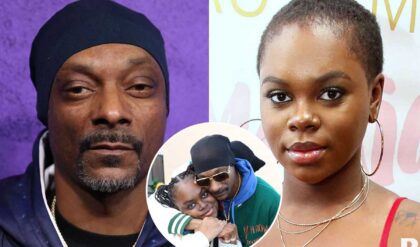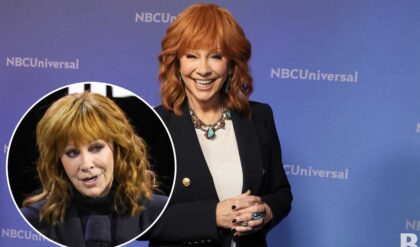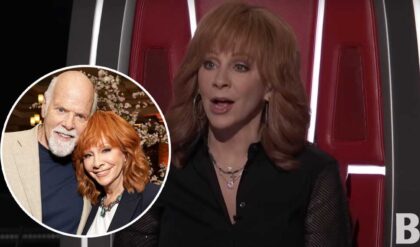New Kids On The Block’s Joey McIntyre Shares His Favorite Career Moments With The Iconic Boy Band
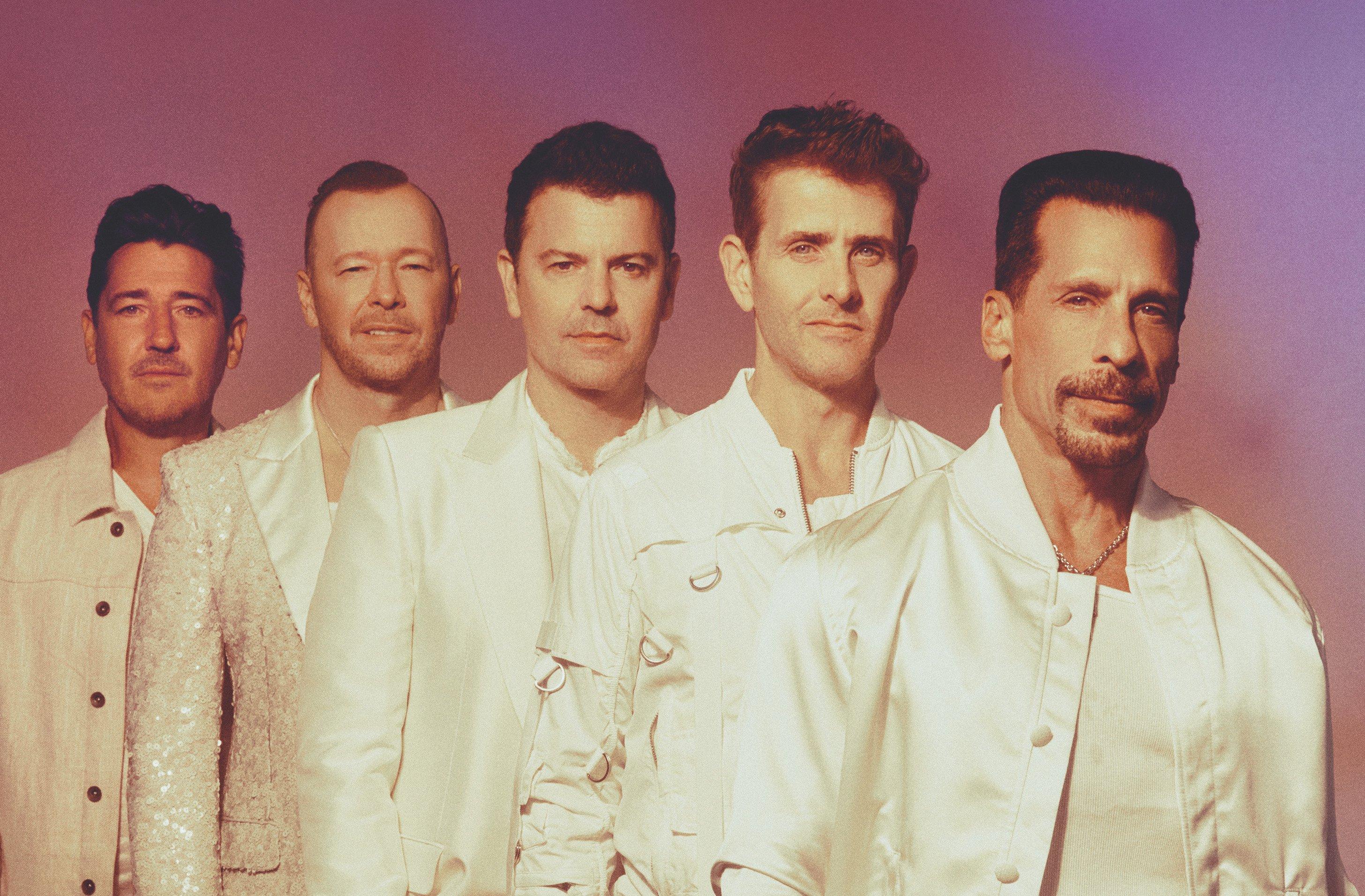
New Kids On The Block
Photo: Austin Hargrave
From conquering the Apollo in the ’80s to writing songs on NKOTB’s celebratory new album ‘Still Kids,’ the group’s Joey McIntyre reflects on a stellar 40-year career in pop music.
Before Backstreet Boys and *NSYNC ruled the pop roost in the ’90s, New Kids On The Block were busy building the boy band template that everyone later followed for international chart success and incredibly ardent fan followings. And it’s a legacy they’re continuing to celebrate nearly four decades later.
On May 17, NKOTB dropped Still Kids, the group’s first new album in 11 years and eighth overall. Standouts such as “Magic,” “Runaway,” and the album’s lead single “Kids” are every bit as light, joyful and catchy as early hits like “Step By Step” and “Hangin’ Tough.” But they sound more mature than they did as teenagers; their harmonies are stronger and sweeter, while the beats and production sounds more sophisticated and contemporary. Fellow ’80s/’90s stars DJ Jazzy Jeff and Taylor Dayne also guest star on the album to help them lean into the nostalgia while still staying current. (Jazzy Jeff will also join them on the Magic Summer Tour, which will make stops around North America from June 14 through Aug. 25 and further continue the throwbacks with Paula Abdul as the third tourmate.)
Of course, it’s not a total surprise that New Kids would want their new work to celebrate the old. The group — brothers Jordan and Jonathan Knight, Joey McIntyre, Donnie Wahlberg and Danny Wood — has sold over 80 million albums, has a star on the Hollywood Walk of Fame, and even an annual New Kids On The Block Day in Boston (for 35 years running!). Their fans, affectionately known as Blockheads, still come out in large numbers to see them perform; according to NKOTB’s new label, BMG, they’ve sold over four million concert tickets since reuniting in 2007 after a 14-year hiatus.
But for McIntyre, the true career highlights aren’t the major accolades — it’s the moments that really saw NKOTB’s talent, and love for one another, shine. In celebration of the release of Still Kids, McIntyre shared five of his most cherished memories from the group’s meteoric pop career.
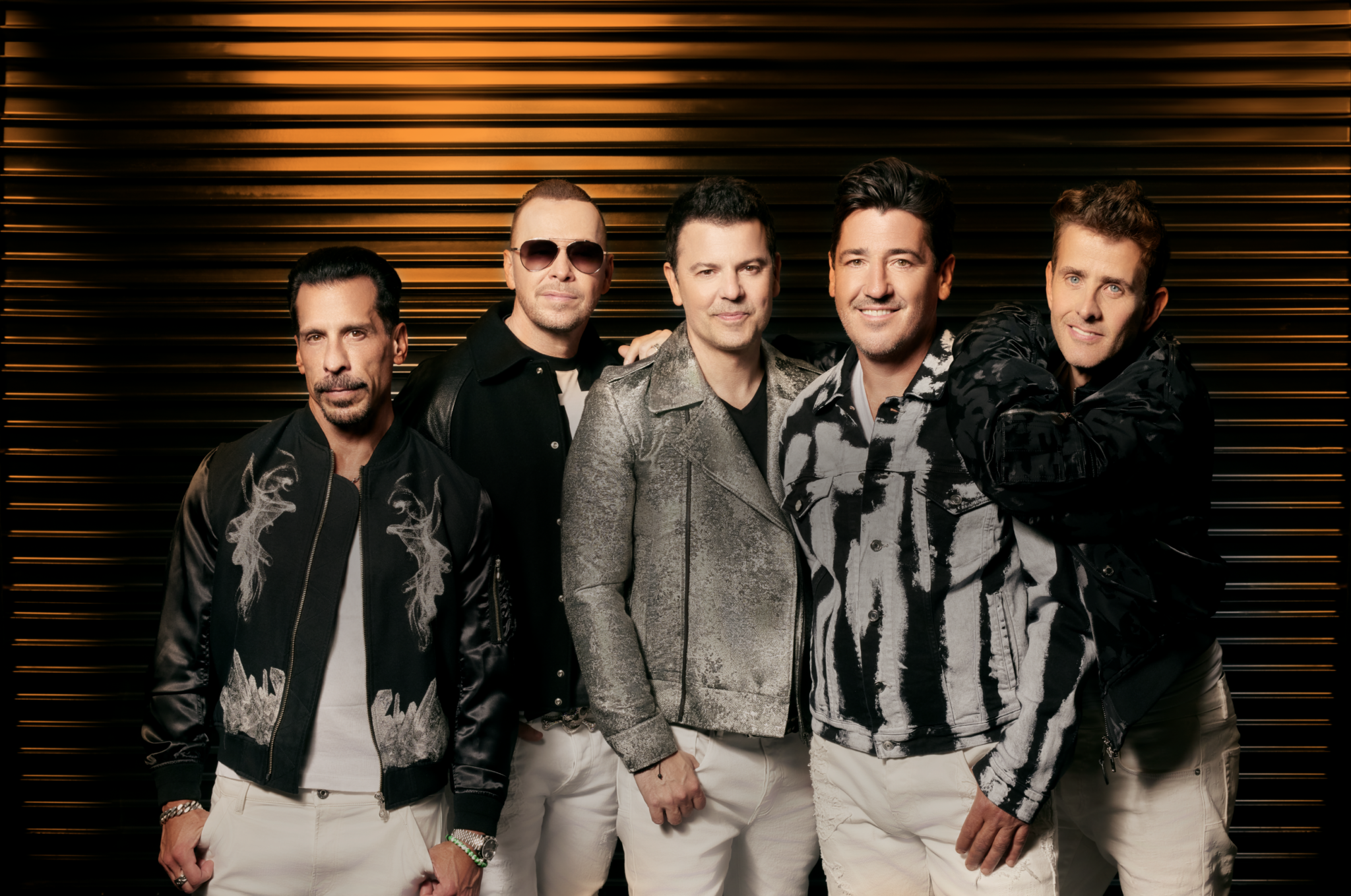
Hollywood Talent Nights At Lee School Before They Were Famous
Through the grace of God, there was a lot going on for the people that wanted it. And these community people that just did it out of the goodness of their hearts and would set up a space for kids to come and number one, stay out of trouble, and number two, give it a shot and have a place to dance and sing and dream.
We would have these Hollywood Talent Nights that [group creator] Maurice [Starr] would put on, and then there were other talent nights. I don’t know how often they were, but even if there were three or four a year, maybe even less, it was something to work towards. And we would rehearse, if we weren’t rehearsing at Jordan and John’s [Knight’s] house, in their basement, we would rehearse at the Lee School.
In the basement of the Lee School, in the backstage, you would walk down the stairs and we’d perform in these little rooms. It was like dressing rooms. They had mirrors; it wasn’t big mirrors, but they had mirrors for the waist up and that was a big deal. So we would perform there, and rehearse there, and it was exciting. We had a place to take chances and be inspired and have a ton of fun as well.
It started with the Lee School and then radio shows [on] WILD, the AM station, the only station that would think about playing us at the time — and it was like, How are we going to surprise them this time? There was a ferocity about it.
Donnie [Wahlberg] is a born leader. Jordan would tell stories about how Donnie would get on the school bus and he’d run the show. He’d tell jokes, he’d rap, he’d make everyone feel good — it’s just in his bones. I think we all had the fire, but there was definitely a ride or die vibe about every show we did.
He worked at a sneaker store, so we’d save up and pool our money together for new outfits, and one time we came on with basketball warmups, those Patrick Ewing basketball warmups. We came on in sweatsuits. First of all, I was freakin’ five feet tall, so I was swimming in everything that we had, but we’d come on and for our number we’d sing whatever, and at the perfect moment we’d rip off the sweatsuits and have red glitter suits on. We’d just try to win the crowd over every time.
I think we still have that spirit. We never want to rest on our laurels, we want to surprise people, otherwise it’s just not worth it. We’ve been lucky enough to do what we love to do.
Performing At The Apollo Theater In 1988
We’ve been able to celebrate that a lot over the years. It really is, in so many ways, the pinnacle for the history of R&B and black music and soulful music, but also rock and roll. The world knew that if you could make it there and survive the Apollo, then you had what it takes to at least give it a shot in the music business.
And we were in that world. In Boston, we played for all-Black audiences. We loved R&B music. That’s what we grew up on, so we weren’t really necessarily fish out of water because, although we were very excited, and of course had lots of nerves, we’d been hustling as a bunch of young kids for a few years.
We got a chance to perform at the Apollo by literally pounding the pavement. And it was one of those days where Maurice was taking us around, and we were going to people’s offices with a boombox, playing music and singing and dancing. And these people, even if they didn’t like us, they were impressed. They couldn’t argue with the guts that we had and the passion.
The guy who ran the Apollo — I’m blanking on his last name, his first name was Al — he would host those nights, and we saw him on the street. Maurice was like, “Hey, Al! We want to come up!” So we came up and performed three songs in his office — it wasn’t a very big office, either — and he said, “We’ll have you down.”
We weren’t in the competition, we were a special guest, because I think it was on a Wednesday and they had a live night, and then they had a TV show [Showtime at the Apollo]. So we did the live night first, and then we did the TV show and they just went crazy for us. I was a little too young to be in tears, but the rest of the guys, we went up to the dressing room and everybody was in tears.
We would hang out at the Apollo. The basement in the Apollo, man, you’d have Heavy D and Chuck D and Kool Moe Dee — you know, all the Ds! I just finished one of RuPaul’s books… I met RuPaul in the stairwell of the Apollo Theater. He was going up and I was going down and we looked up at each other: “Hey, how you doin’?”
This was a long time ago but, you know, it was just a special place. Back then you had to connect in person. Now we have social media. It’s wonderful, you can connect. You can DM people and suddenly connect with your heroes or collaborators and it’s great, but back then, you had to be in the place. And that’s what the Apollo represented for us. So we were just like kids in a candy store.
Getting Their First Tour Bus
There’s nothing like jumping on your first tour bus. Our first manager, Mary Alford, had a two-door Mustang, I would have to sit on somebody’s lap in the front seat, and then three dudes would be stuck in the back, and she’d be driving. The big splurge was getting a bigger four-door car to drive down to New York for those trips. We’d still be mashed up.
You know, just to know you are literally going on the road for the first time. I’m 15, the other guys are, like, 18, 19, and there’s really nothing cooler. But we were very emotional for a lot of reasons. For having a chance to do our thing and saying goodbye to our family, our hometown, knowing this is part of making it. So it was pretty cool.
Working With New Edition
Before I was even in the New Kids, the New Edition album with “Cool It Now” was my [favorite] album. The fact that they were from Boston was amazing, a massive bonus, and we were all, just, goo goo ga ga any time we could meet them or think we could meet them.
So over the years we would touch base, and then we got to sing together on our album The Block in 2008. But then a couple years ago we did a big mashup performance on the AMAs and I cried like a baby, like, three times. I cried on the phone with Donnie just thinking about it as we started rehearsals. Then I cried afterwards.
A couple days later was Thanksgiving. We went around the table and talked about what we were grateful for, and the tears just came to my eyes. I couldn’t think of anything better to be more thankful for than to work with your heroes. They’ve just been so gracious, so gracious, over the years. And from where they came and how they really set the standard for us. They really did.
You don’t realize it until the more you live and the more you are in this business. To have people walk the walk and talk the talk, and then be kind and supportive at the same time, it’s very cool. Just to be friends with those guys is a dream.
Making Still Kids
You want to give the people what they’re looking for and also surprise them at the same time, and I think this album has a good combination. I feel great about the fact that I ended up co-writing half of the album. I’ve just been writing more, so that was important to me. And I’ve been lucky enough to write for the group over the years, but this felt a little different. I think it takes guts to stretch and grow with the group, within the dynamics of the group. It’s not easy but we’ve always said, “Let’s go, let’s give it a shot.”
So this was a good combo, this album. It’s new, we’re definitely harking back to the good old days, but it definitely reflects that we’re not 18 anymore. But I think they’re that spirit.
As we get older, we’re always reaching back. We want to have that fire and that curiosity we had as kids. We don’t want to let the cynicism of life pull us down and at the same time, all that fuels the writing and the expression. So it’s exciting to feel good about an album that has the right balance.
In song, he was a true storyteller that was clever, funny and introspective; in performances, he was the quintessential Parrothead to the core. As the ringleader of the party, he was generous enough to share the spotlight with members of his Coral Reefer Band as well as the fans who dressed up, tailgated outside the venues and spread their joy to others.
Both sides of Buffett were crucial building blocks in the business empire he built around his persona as the laid-back, casually philosophical beach bum. The Margaritaville restaurant and resort chains, his Landshark Lager beer and many other ventures made him a billionaire, while his storytelling prowess made him one of few authors to top both fiction and nonfiction bestsellers’ lists. While his legacy may be both musical and merchandisable, the endearing qualities of the Parrothead personality he created is the real reward for his fans.
Below, remember Buffett’s illustrious career through 15 classic songs — just a glimpse of his genius that made it okay for country singers to loosen up, for rockers to pick up an acoustic guitar, and for the Parrotheads to while away their days in the sun.
“Why Don’t We Get Drunk,” ‘A White Sports Coat and a Pink Crustacean’ (1973)
While Buffett’s first two albums showed glimpses of the celebrated artist he would become, his songwriting largely hewed close to the earnest observations typical of early-seventies folkies. By his third album, though, he had grown into his winking style of satire and breezy, Nashville-meets-Key West flair.
This cut from A White Sports Coat and a Pink Crustacean combined both, and created the template for hundreds of bleary-eyed sing-alongs to follow. “The Great Filling Station Hold-Up” may have been the proper album single, but “Why Don’t We Get Drunk,” its controversial B-side, became the bigger tune — and the one featured on his seven-times Platinum compilation, Songs You Know By Heart.
“Come Monday,” ‘Living & Dying in ¾ Time’ (1974)
As Buffett pulled away from his folk sensibilities, Nashville-style balladry became a big part of his sound. “Come Monday” brings orchestral strings into the mix to help express the yearnings he felt while stuck in “a brown L.A. haze,” pining for his love back home. The song resonated with new fans, becoming his first Top 40 single, as it peaked at No. 30 on the Billboard Hot 100.
“A Pirate Looks at Forty,” ‘A1A’ (1974)
It probably wasn’t a stretch for Buffett to sing so convincingly from the perspective of a seafaring, modern-day pirate. He considered his own later entrepreneurial forays an adventure on the high seas of life. But back in ’74, he was so inspired by the real-life stories of a Key West smuggler and rapscallion he befriended that he wrote “A Pirate Looks at Forty” from his perspective.
A key cut on his second long-player of ’74, A1A, “Pirate” is empathetic to the dashed dreams and yearnings of a man looking back at his wins and losses. And despite the eventual billionaire fortunes of Buffett himself, his narrator determines the balance is a draw.
“Margaritaville,” ‘Changes in Latitude, Changes in Attitude’ (1977)
Buffett’s next album, Changes in Latitude, Changes in Attitude, launched his music career into the stratosphere — and its success had a lot to do with “Margaritaville,” a Top 10 hit and the basis of the global brand he later built.
Essentially, “Margaritaville” established the beach-boho lifestyle as an aspiration for millions. Against a backdrop of tropical instruments like steel drum and marimba, Buffett sang of the quiet pleasures of an unhurried life, unconcerned with the tides and buoyed by his favorite blender drink. In 2016, the tune was voted into the GRAMMY Hall of Fame, while the Library of Congress added it to the National Recording Registry in April 2023.
“Son Of A Son Of A Sailor,” ‘Son Of A Son Of A Sailor’ (1978)
Whether Buffett’s soft and breezy music can be considered “yacht rock” is a subject of debate, but he certainly rocked a yacht or two in his day — and he dressed the part for the cover of his album Son Of A Son Of A Sailor. The title track is a definitive take on his love of the wandering life, untethered from the anchors many cling to and always in search of the next port of call. A master of ballads whimsical and wistful, Buffett manages to be both at once here.
“Cheeseburger in Paradise,” ‘Son Of A Son Of A Sailor’ (1978)
Before it was a menu item at his Margaritaville-branded restaurants and resorts, “Cheeseburger in Paradise” was a mirage Buffett dreamed about while marooned at sea. As the story goes, a misadventure in the Caribbean left Buffett with only meager rations to survive. And when he finally struck a landing on dry ground, his first meal inspired one of his most enduring songs: an easy-rockin’ Top 40 hit about cheeseburgers that somehow isn’t a novelty cut — a hat trick only Buffett could pull off.
“Fins,” ‘Volcano’ (1979)
As the lead tune from his 11th album, Volcano, “Fins” entered the pantheon of Buffett concert staples immediately and helped inspire plenty of Parrothead ephemera, as well as the title of the 1990 live album Feeding Frenzy and his Landshark Lager brand. But none of that would be important if not for Buffett’s song about a hapless woman who travels to the beach to relax, but instead is encircled by “sharks that can swim on the land.” With “fins” to the left and right of her, she’s “the only bait in town.”
“Boat Drinks,” ‘Volcano’ (1979)
Buffett had a knack for coining phrases — and “Boat Drinks” certainly qualifies among the best. What makes a boat ride better? Boat drinks, of course.
An album cut from Volcano (also featured as a B-side to the single “Survive”), Buffett ironically wrote the song while on a winter sojourn in Boston, exiled from his native habitat and wishing the city’s fresh blanket of snow were the sugar-white sands of Florida. Musically, the tune is a quintessential cut from his whirlwind late-seventies period, when Caribbean themes and sonic textures became his calling card.
“It’s My Job,” ‘Coconut Telegraph’ (1981)
Long before Mac McAnally joined Buffett as a sideman in the Coral Reefer Band, Buffett sent the young artist a note praising his songwriting. Then, for his 1981 album, Coconut Telegraph, Buffett boosted his new friend’s fortunes by recording “It’s My Job,” a tune McAnally wrote about taking pride in your work — however menial or miserable it may be — while working on a hot Mississippi highway in the summertime. The tune reached No. 57 on the Billboard Hot 100, marking Buffett’s last appearance on the chart until 2003 (more on that later).
“One Particular Harbor,” ‘One Particular Harbor’ (1983)
The 1980s were the beginning of Buffett’s transition from chart champion to blockbuster concert draw. But he still had plenty of gas in the songwriting tank, as songs like “One Particular Harbor” proved.
Inspired by his travels in Polynesia, Buffett sings in Tahitian about the “abundance of the sea” after leaving behind the mainland. While the song was a minor hit on Adult Contemporary radio, it became a fan favorite and a mainstay of live shows from the era.
“Jamaica Mistaica,” ‘Banana Wind’ (1996)
Like on “Cheeseburger in Paradise,” Buffett’s penchant for seeing the humor in the unfortunate dustups of his real life shines on the Banana Wind cut “Jamaica Mistaica.” In this case, Jamaican police opened fire on his plane, believing he was a smuggler or criminal straight out of his own song “A Pirate Looks at Forty.” Set to a reggae beat, though, Buffett lets listeners in on the joke — an endearing quality that earned him the love not only of Parrotheads, but also an official apology from the Jamaican government.
“It’s Five O’Clock Somewhere,” Alan Jackson’s ‘Greatest Hits Volume II’ (2003)
By the dawn of the new century, Buffett’s beach-bum aesthetic had conquered Nashville, the town he left in the early ’70s to find his identity as an artist in Key West. And “It’s Five O’Clock Somewhere,” recorded with country star Alan Jackson and featured on his Greatest Hits Volume II, was exactly the new Buffett-style anthem Music City needed.
It was also what Buffett’s 21st century career needed: “It’s Five O’Clock Somewhere” earned the veteran singer his first No. 1 on Billboard‘s Hot Country Songs chart as well as his first GRAMMY nomination (in the Best Country Collaboration With Vocals Category) and his first Country Music Association Award (for Vocal Event of the Year). Later, the song notched the No. 3 song of the decade on Billboard‘s Hot Country Songs chart, proving Buffett’s staying power amid shifting musical trends.
“Bama Breeze,” ‘Take the Weather With You’ (2006)
After Hurricane Katrina made matchsticks of Buffett’s home territory in 2005 — the beachfront bars of Mississippi, Alabama and Florida where he cut his teeth — he responded with the album Take the Weather With You and its leadoff track, “Bama Breeze.” The country-rock tune extols the virtues of the so-called “Redneck Riviera” and coming of age as the sun came up outside the dive bars of the Gulf Coast, many of which were now ruined. The song also nods to the fans who have stuck by him since the beginning: “At the Bama Breeze, you’re one of our own down there/ You’ll never drink alone down there/ Good god, I feel at home down there.”
“Knee Deep,” ‘You Get What You Give’ (Zac Brown Band, 2010)
One of the most rewarding markers of a mature career in music is the respect paid by each successive generation of musicians. Newly minted country star Zac Brown paid homage with “Knee Deep,” which was written with Buffett in mind and borrows heavily from his long-established beachbound, escape-by-tropics aesthetic. But it truly takes off when Buffett himself takes the second verse and then harmonizes the choruses with Brown. And the combination proved sweet for both acts: the song was certified triple Platinum and landed at No. 1 on Billboard‘s Hot Country Songs and Country Airplay charts.
“Bubbles Up,” ‘Equal Strain On All Parts’ (2023)
Although the public wasn’t aware at the time, Buffett was dealing with the effects of Merkel cell carcinoma — the disease that claimed his life — throughout his final years of touring and recording music. Released two months after he passed, Equal Strain On All Parts, his 32nd and final album, arrived like a comforting voice from beyond to Parrotheads and casual fans alike.
On “Bubbles Up,” Buffett was in a particularly reflective mood, facing his own mortality in his most measured, reassuring manner. The title phrase came from his survival training — if he were to find himself submerged in water, either from a boat or plane wreck, his trainers advised him to follow the bubbles up to the surface. “They will always point you toward home,” he sings, “no matter how deep or how far you roam.”
For a songwriter and performer who spent his life showing the world how to relax, enjoy life and see the humor in life’s challenges, the reassuring sentiment — to quote the title of his 2004 album — underscores that a License to Chill has no expiration date.
News
[EMOTIONAL] Snoop Dogg’s Daughter Cori Broadus Makes Fans Cry Recalls Suffering a Stroke in New Special
Snoop Dogg’s Daughter Cori Broadus Details Suffering Stroke While Wedding Planning in New E! Special Snoop Dogg’s daughter Cori Broadus faces a terrifying health scare and major relationship troubles while planning her wedding in first trailer for E!’s Snoop Dogg’s Fatherhood:…
Reba McEntire Fans Call Out Country Star for Perplexing Message
Reba McEntire Fans Call Out Country Star for Perplexing Message on Election Day Many celebrities issued political messages leading up to the 2024 election, but Reba McEntire was not one of them. On Election Day, however, the country star issued a perplexing statement…
[Watch] Reba McEntire Makes A Stuns As She Cozies Up to Boyfriend Rex Linn in Her ‘The Voice’ Chair
Reba McEntire had a special guest on the set of The Voice recently: The first-time coach’s boyfriend and fellow “tot” Rex Linn stopped by. The pair cozied up for a couple of photos in her iconic red chair, and McEntire used the opportunity to solicit votes for…
John Legend Makes A Stun As He Reveals When Blake Shelton Will Return to The Voice
‘The Voice’: John Legend Addresses Whether Blake Shelton Will Ever Return to Show Amy Sussman/Getty Images; Jason Davis/Getty Images) Following Blake Shelton‘s exit from The Voice at the end of Season 23, John Legend is now the longest-tenured coach on the NBC singing competition series. But could…
The $H0CKING Reason Niall Horan Leave ‘The Voice’. Her Is All You Need To Know
Why Did Niall Horan Leave ‘The Voice’ Season 25? Here’s the Real Reason Behind His Exit The former One Direction band member won’t be a judge on the NBC series in 2024. NBC We’ve been independently researching and testing products…
Gwen Stefani Said ‘The Voice’ caused a misunderstanding about she and Blake Shelton relationship
Gwen Stefani Said ‘The Voice’ Edited Footage to Look Like She Was Flirting With Blake Shelton Long Before They Were Together In 2015, both Gwen Stefani and Blake Shelton left their respective marriages. Stefani had wanted to conceal her separation from Gavin Rossdale on…
End of content
No more pages to load






